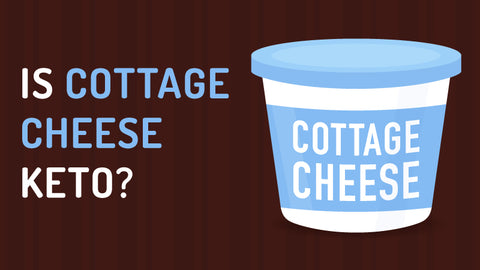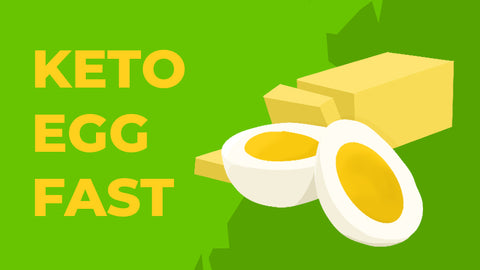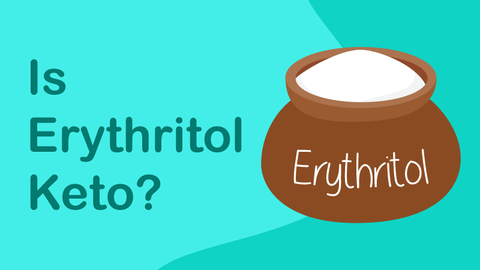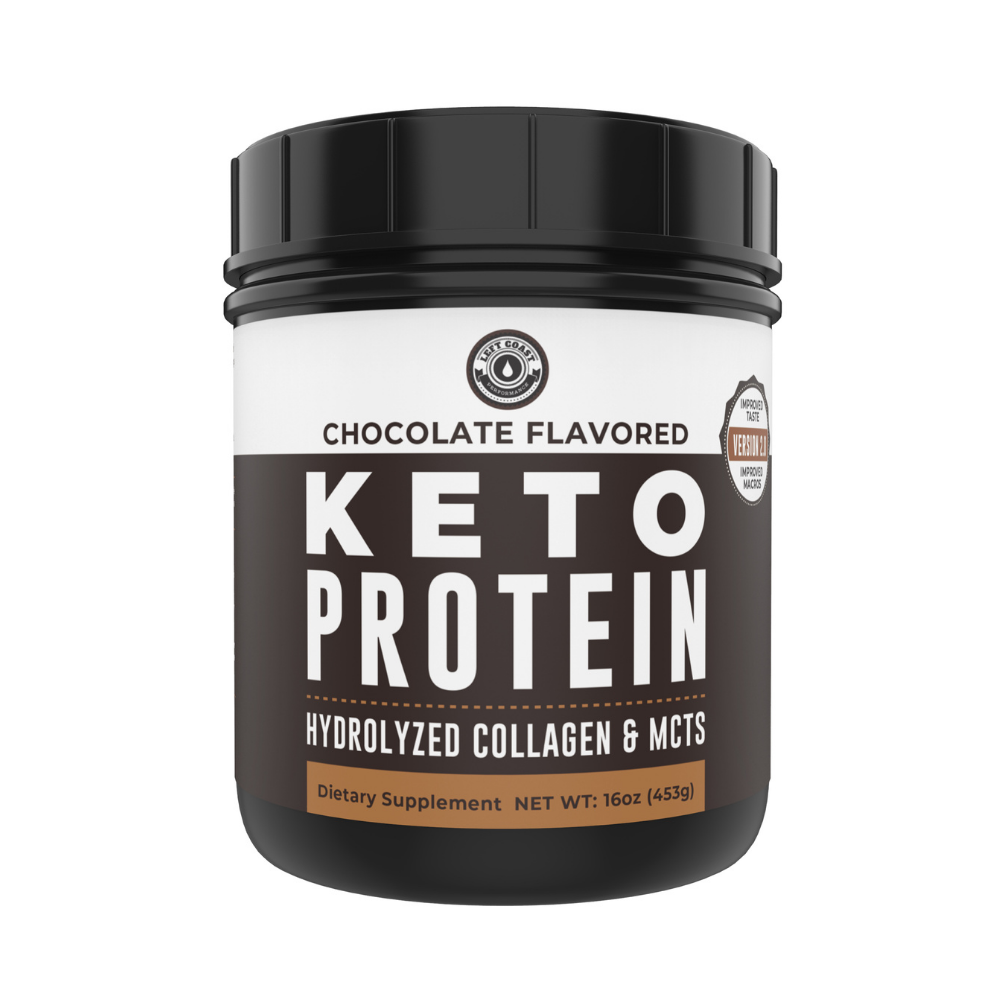Why Do I Have No Appetite on Keto? (...and what to do)

on June 06, 2019
A loss of appetite is usually a bad sign. It often happens when we’re sick, stressed out, or otherwise traumatized. However, for those who want to lose weight, appetite is one of the greatest challenges to overcome.
In general, diets have a tendency to make people feel hungrier, creating a never-ending battle between an individual and what they eat.
However, when it comes to the ketogenic diet, people tend to experience hunger and appetite differently. Followers of the keto diet often report a reduction in appetite, even as they lose weight.
Today, we’re going to examine the mechanisms behind ketosis and appetite in order to understand why you may feel less hungry on the keto diet.
What Is Ketosis?
In order to understand the effects of the keto diet on appetite, it’s important to discuss the metabolic process around which the diet is based. Ketosis is the driving mechanism of the ketogenic diet, and the concepts behind it are pretty simple.
On a standard high carb North American diet, the body breaks down carbs into glucose which can then enter your blood stream. If glucose in your blood stream and ATP stores (energy) is relatively high then your body will convert glucose into glycogen. Glycogen is stored in your muscles and liver for later use.
When carbs are scarce and glucose levels in the blood are low your body will start converting glycogen back to glucose for energy. Once you've depleted your glycogen stores your body has to turn to ketone bodies for energy.
Our bodies are always making small amounts of ketones. However, in a state of ketosis your body will produce an increased number of ketones from fat. This fat either comes from your food or from body fat.
Unlike glucose, ketones that aren't used as a fuel source are not stored. Instead, the kidneys filter them out of the blood, and the body passes them as waste.
It takes a large change in diet to start and maintain ketosis. The process itself can have drastic effects on your appetite. However, before we explore how ketosis affects appetite, it is important to understand the difference between appetite and hunger.
Appetite vs. Hunger
While the two terms are used somewhat interchangeably, hunger and appetite have very different meanings when it comes to science and nutrition.
Hunger is the urgent need for food due to lack of eating. It’s a notable feeling of discomfort and is determined by the actual emptiness of the stomach. This feeling that we experience is the end result of a series of chain reactions due to a chemical signal sent from the stomach to the brain. This signal tells us it's time to eat.
Appetite, on the other hand is a desire to eat, usually after seeing, smelling, or thinking about food. Humans are capable of experiencing appetite regardless of how long it’s been since they’ve eaten.
For many, appetite is associated with cravings and has little to do with our actual dietary needs. It’s also the mechanism that tells our body to stop eating, even when we may still need to take in nutrition. This occurs often when people are ill or feel stressed.
Scientists can measure hunger in terms of the hormones leptin and ghrelin. Leptin is the hormone responsible for suppressing appetite, where ghrelin is responsible for increasing it.
While researchers have identified these two critical hormones and understand they play a role in generating hunger signals, it’s not clear exactly how these hormones function within the body and the exact responsibilities each plays.
Why Your Appetite May Decrease On a Low-Carb, High-Fat Keto Diet:
Scientists actually aren’t entirely sure, but they have proven in studies and meta-analyses that keto-diet participants feel less hungry and (more importantly) don't feel an increase in appetite, even as they reduce calories and lose weight.
While there is no conclusive research as to what causes this side effect, there are a number of theories that we'll explore.
Ketosis
Some researchers reason that the process of ketosis itself is the cause for decreased appetite on the keto diet. In studies that compared keto diets with other low-energy diets, both groups saw decreases in appetite.
While the diets studied are very different from one another, the thing they both have in common is elevated ketone levels. It is possible that a decrease in appetite hormones may stem from the process of ketosis itself.
Protein Is the Most Satiating Macronutrient
The typical North American diet consists of 50% carbohydrates, 35% fat and 15% protein.
A keto diet recommends that 20-25% of your calories come from protein.
If you're following the keto diet you're likely to eat more protein than if you're following a standard high-carb diet. Studies have shown that protein is one of the most satiating nutrients, which may result in longer-lasting feelings of fullness and a decrease in appetite.
Glucose Concentrations
This study looked at if eating a high fat, low-carb breakfast, improved satiety compared to a high-carb, low fat breakfast.
What they found is glucose levels spiked in the short term and then fell much more dramatically than the higher fat breakfast.

They also found that high carb intake resulted in greater self-reported hunger levels after hours 3 and 4.

This may indicate that an earlier rise and fall of glucose concentrations may increase hunger levels. What's interesting is the high fat group in this study still ate a considerable number of carbs.
On a keto diet where carbs are even more scarce, blood sugar (glucose) spikes are practically non-existent. Based on this, we would assume that a keto diet would further increase satiety levels.
Not All Calories Are Equal
If you are following a dirty keto diet, this won't help you. But assuming you're following a clean keto diet your food is likely to be less processed than a standard North American diet.
Generally, the less processed food is the more energy your body will have to expend digesting it.
For example if a scoop of our nut butter contained 10 macadamia nuts, 5 almonds and 1 cashew, that will require less energy to eat than if you ate those same number of nuts raw.
An oversimplification of this - if you eat more whole foods, it's going to be easier to maintain a caloric deficit. This may sound trivial but researchers found that raw walnuts contained 21%
While we believe counting calories can have a positive benefit on weight loss, it's not a perfect system. If you changed your way of eating from processed food to whole foods you may notice a decrease in appetite.
Cholecystokinin
Like leptin and ghrelin our understanding of cholecystokinin and how it impacts satiety is very basic.
Levels of cholecystokinin increase when partially digested fatty acids and protein hit your small intestine. When this happens it facilitates the release of digestive enzymes and bile.
Elevated levels of cholecystokinin may impact satiety.
A diet higher in fat will deliver more fatty acids to the small intestine, releasing more cholecystokinin.
Keto Flu and Fatigue
Because keto can reduce appetite but not hunger, you may experience symptoms associated with starvation, yet still not feel the urge to eat. This is known as the keto flu.
Side effects of this can include lightheadedness, fatigue, dizziness, headaches, cramping, decreased energy levels and irritability
To fight this focus on high quality fats, increase electrolytes, drink plenty of water, rest and ensure you're eating enough calories.
When You Should Be Worried
While some people welcome the appetite-reducing effects of the keto diet, it can be a frightening experience.
You may find your appetite will come and go as you progress through the beginning of your keto journey.
At first, you may experience a dramatic increase in appetite. Your body is using up the last of its glucose and glycogen and is running on empty. The body sends hunger signals to the brain, asking to eat more food.
After the first few days of keto, your hunger levels may reverse, leaving you feeling less hungry than ever before. Some people struggle to hit their target calories for the day, feeling full after just a few bites. If you're struggling to hit your caloric goals you may want to consider drizzling healthy fats over your meals such as MCT oil or coconut oil.
Eventually, the body gets used to a low carb high fat diet your energy and hunger levels should balance out. Most people still feel less hungry than they do while on a full-carb diet, but don’t have difficulty eating or hitting their target macros for the day.
If you're still experiencing drastic side effects of appetite suppression after several weeks it may be time to consult a physician or nutrition professional.
How To Get Yourself To Eat When You Have No Appetite
Everybody reacts to the ketosis process differently. The keto diet asks a lot of your body, so give it a break while it is in transition.
You may be used to eating three square meals a day, the ketogenic diet can drastically alter this pattern. If the plate in front of you seems overwhelming, just eat what you feel comfortable with eating.
If you're struggling to eat, focus on eating whole foods and healthy fats. Avocados, coconut oil, MCT oil, fatty fish, nuts, seeds and non-starchy vegetables.
In Summary
Ketosis transforms the body in many different ways — it really shows us how many different aspects of life are affected by the things we eat.
Appetite plays a large role in eating habits, diets, and weight loss. While it is different from hunger in many ways, appetite still affects how we feel about food, and often is the mechanism that gets us to eat when we do.
The keto diet can throw hunger and appetite levels for a loop, which can be an unnerving experience for many. The important thing to remember is that every keto journey starts out with an imbalance, and then slowly, our bodies adjust to a new normal. From there, our ability to lose weight and get fit can change dramatically for the better.














